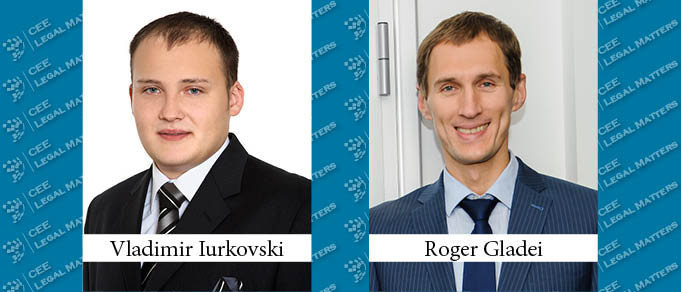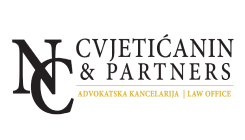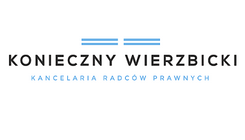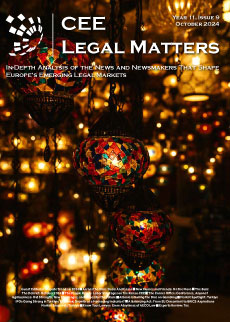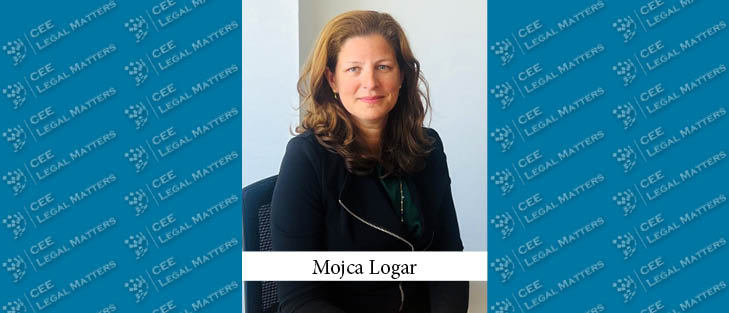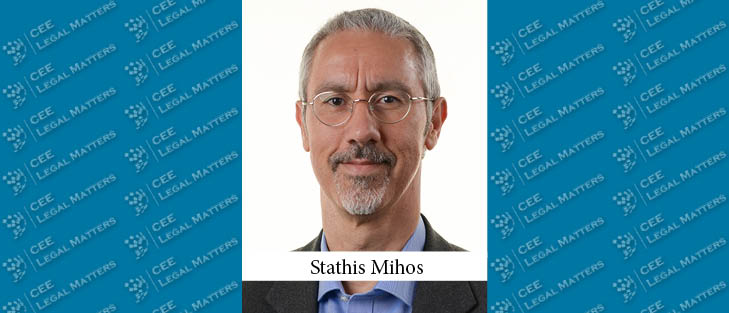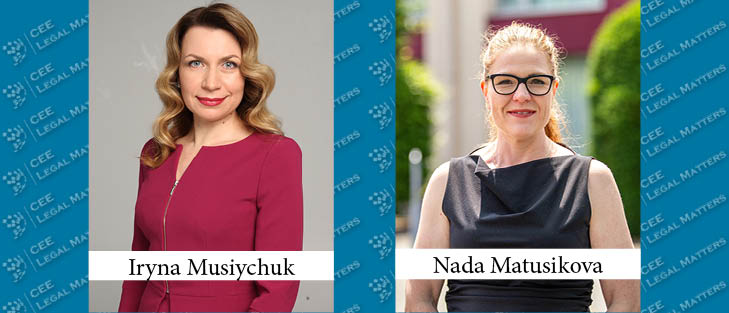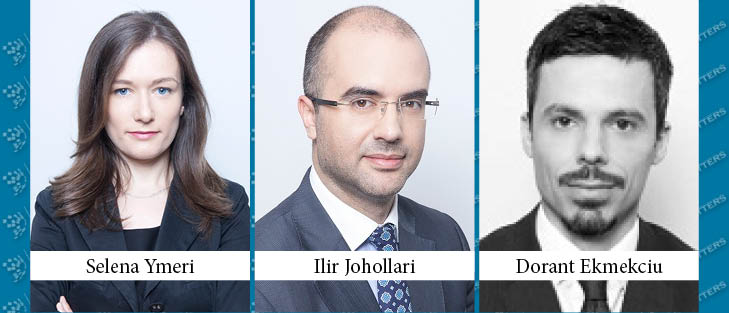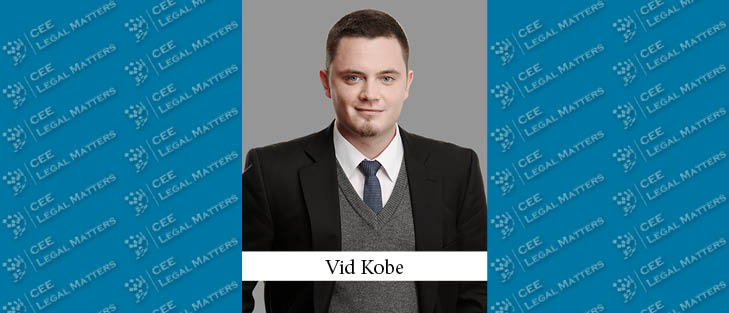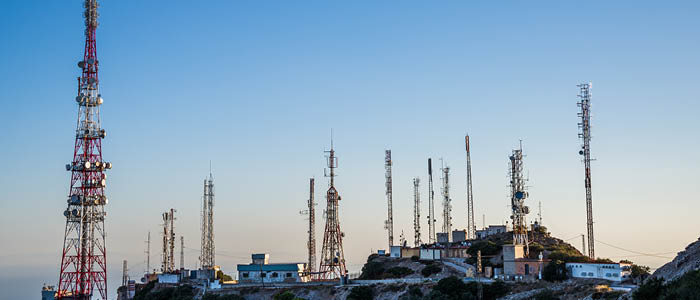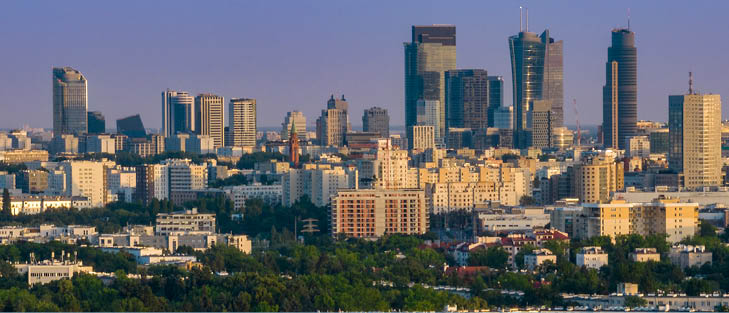On March 5, 2020, CEE Legal Matters reported that Schoenherr had advised Fintur Holdings B.V. on its USD 31.5 million sale of its 100% holding of Moldcell S.A., to CG Cell Technologies DAC. Gladei & Partners advised CG Cell Technologies. We spoke to Vladimir Iurkovski at Schoenherr and Roger Gladei at Gladei & Partners for more information about the deal.
CEELM: Vladimir, let’s start with you. How did you and Schoenherr become involved in this matter?
Vladimir: This was a mandate which has been ongoing for quite some time. As you know, Moldcell was disposed of as part of the Telia Group’s strategy to exit from the Eurasian region (Azerbaijan, Georgia, Kazakhstan, and Moldova). Everything started back in May 2015, when the Telia Group – which included Fintur Holdings – approached us through its English-law counsel (at that time Davis Polk & Wardwell, London) requesting legal assistance under Moldovan law in preparing the seller’s legal due diligence of Moldcell, and consultancy on the Moldovan leg of the possible sales transaction. At that time, Schoenherr already had a serious local portfolio in telecom transactions (including assisting a Swedish investor on the possible purchase of the fourth Moldovan GSM operator, which ultimately went bankrupt resulting in the transaction not taking place, and advising Orange on its purchase of Sun Communications).
Although smaller telecoms transactions have taken place in Moldova over the years, the sale of Moldcell (as one of the biggest GSM operators in the country) was the first of this size to take place here.
Over time this mandate involved numerous steps (including updating the reports, addressing the risks, considerations related to structuring of the transaction, dealing with merger clearance, and transacting with Turkcell for the Telia Group to obtain sole control over Fintur Holdings) which ultimately led to its completion in spring 2020.
CEELM: Roger, how did you and your firm get involved in this matter?
Roger: it started quite ordinarily, back in November 2019, with an RfP, tender, and scrutiny by the potential buyer. Then a pause. Late in December someone pulled the trigger and it went full thrust: the data room opened on January 1st, a record-time due diligence, forget about Old Christmas holidays, get snowed under the work, contemplate the snow only through the office window.
CEELM: What, exactly, were your mandates at the very beginning when you were first retained for this project?
Vladimir: Initially we were retained to perform a legal due diligence of Moldcell, to be presented on a non-reliance or reliance basis to bidders. The due diligence had to cover all fields of activity of Moldcell, with a focus on title to shares and historical transactions with shares, the regulatory field (including the possibility to prolong the core licenses held by Moldcell), the corporate structure and its compliance with Moldovan legislation, competition law implications, a review of material agreements, an analysis of labor arrangements, and a review of material disputes. Immediately thereafter we were solicited to advise on the possibility of effecting the transfer of shares in Moldcell and post-completion filings. Also, we were requested to provide advice on addressing certain issues addressed in our report and to conduct the legal review of Moldcell’s immovable property (i.e., real estate).
Roger: Target companies’ legal due diligence, including reviewing the vendor LDD Report.
CEELM: Who were the members of your team, and what were their individual responsibilities?
Vladimir: I led the Schoenherr team advising Fintur Holdings (Telia Group) on this mandate in relation to the Moldovan law aspects of the transaction. When the transaction with CG Cell Technologies occurred, the seller’s counsel, Sullivan & Cromwell LLP, advised on English law. Throughout the mandate, I was supported by my Senior Associate Andrian Guzun and my Associate Denis Lefter (both from our Moldovan office). While I was in charge of direct contact with the client and the English-law counsel, and of negotiating with the other party, Andrian and Denis (and other colleagues from the office) supported me with all aspects of the transaction including the seller’s due diligence, drafting required transaction documents, merger clearance for the prior transaction with Turkcell, completion steps, and so on.
Roger: Dan Nicoara was the project leader, coordinating the due diligence and contract matters. Most of our associates were involved in the LDD exercise, with Irina Sugoneaco coordinating the financing transactions side.
CEELM: Please describe the deal in as much detail as possible, including your (and your firms’) roles in making it happen.
Roger: It was an extraordinary transaction from day one. Not only cross-border, but a truly multicultural deal, with Turkish leasing counsel and an Indian project manager, with Nepalese background experience. That’s on our side. There were strict and sober Swedish gentlemen and two international law firms on the other side. There were rounds and rounds of phone conversations, burning the midnight oil in reviewing and revising contractual documentation, and legal arm-wrestling on the key issues – we felt like we were playing in the Super League, but an infinite game.
It was our first deal with this client, so there was no previous chemistry, as we had never seen their faces before. But we spoke the same language: the language of dedication to make it through. The client was determined and contaminated our team with that. We repaid them by deploying all our resources and expertise, and my younger fellows demonstrated a terrific resilience and desire to see it done.
You see, there are not so many large-scale M&A transactions in Moldova. Quite often the foreign clients drop the deal because of internal or, more often, external constraints. Moldova is still perceived as a country with an unstable economy and unpredictable laws, and reputable investors are yet to put it on their maps.
This deal was different from this perspective too: a Nepalese businessman cannot become afraid of Moldovan uncertainty. Before pitching, I googled Chaudhary family and got really impressed: Binod Chaudhary is a self-made man, coming from a simple family and becoming the best-known and most acclaimed Nepalese investor in the whole world. CG Corp Global has over a hundred companies under its umbrella and an investment outlay of over USD 1 billion. You can imagine my emotions when back in March 2020, when the project manager texted me: Mr. Chaudhary will visit Chisinau and wants to see you.
He turned to be a very nice person: tough and agile in negotiations, while gentle and kind in personal conversations. Once talks in our office were completed, and points made, Mr. Chaudhary turning his eyes over the books on my shelf: “I know this guy, we had tea together.” Gosh, “this guy” is Sri Swami Rama, his book Living with Himalayan Masters had just landed on my shelf from Amazon. It turned out that Mr. Chaudhary and me share many passions.
After the deal was signed, Mr. Chaudhary took me to his company, for the first meeting with the people. You need to see how he knew to ignite people’s optimism and desire to succeed. And not because it was Valentine’s Day or the eve of my birthday.
Vladimir: The mandate commenced back in spring 2015 with the preparation of the seller’s due diligence (which was updated at least four times until 2020), as well as other legal preparatory steps. This was followed by a lengthy process of identification of the purchaser, discussions, and meetings with and explanations to bidders. Before the transaction with CG Cell Technologies, in the beginning of 2019 the Telia Group obtained sole control over Fintur Holdings following a transaction with Turkcell. This part included obtaining merger clearance from the Moldovan Competition Council within a relatively short period of time. Negotiations with CG Cell Technologies commenced in the second half of 2019, including various topics, including findings from the due diligence, the necessity for merger clearance in Moldova, negotiations of the framework agreement, mechanics of the local transfer of shares, completion, and post-completion steps. The framework agreement was signed on February 14, 2020, while the completion happening shortly thereafter.
CEELM: What’s is the current status of the deal?
Roger: It closed in March 2020.
CEELM: What was the most challenging or frustrating part of the process?
Roger: Definitely, the post-signing part. Early in March 2020, the Covid pandemic had reached Moldova and the authorities decreed a state of emergency, with an immediate shut-down of most public offices and insistent recommendations to stay home. We closed the deal with masks on the faces, literally. I clearly recall the closing day of March 24, as guerrilla partisans – the seller’s counsels and us – divided into two groups, with one driving to the notary and the other to the share registrar’s office. The deal was complex, and the different structures of Moldovan targets required different completion steps, but we managed it as a legal blitzkrieg. One after another, all the bureaucratic redoubts fell and we passed through with flying colors.
Vladimir: There were two challenging situations during this transaction. The first was when the Moldovan authorities unexpectedly wanted to scrutinize the transaction in more detail, as the parties to the transaction were preparing to complete it. This was indeed challenging and unexpected. In my opinion this happened due to the size of the transaction and the importance of Moldcell to the Moldovan economy. In the end, all went well, and the parties continued with the transaction.
The second was that we had to conclude the transaction (including preparing the pre-completion steps, etc.) during the state of emergency that was declared in Moldova due to the COVID-19 pandemic. Until the last moment, it was unclear whether the register authorities and other entities (such as the notary, for instance) would be legally allowed to fulfil their duties and allow the transaction to be completed. The parties had to provide corresponding reasoning and succeeded in accomplishing the goal.
CEELM: Was there any part of the process that was unusually or unexpectedly smooth/easy?
Roger: That was not the case. In fact, we managed to close in the last minute, and even one or two days of delay would have thrown the completion out to the unknown future, as the pandemic was on the rise.
Vladimir: In my opinion, the completion date. On the agreed-upon time and date, and in different locations, involving different registrars, and representatives from each side, it all went incredibly smoothly. On the same date, we managed to conclude the local transfer instruments, obtain the notary formalities, and pass the target shares to CG Cell Technologies.
CEELM: Did the final result match your initial mandate, or did it transform somehow from what was initially anticipated?
Vladimir: Yes, it changed over time, since the sale of Moldcell was protracted, involving numerous negotiations with different parties, adjustments to the initial plan, preparatory steps (such as the acquisition by the Telia Group of sole controls over Fintur Holdings from Turkcell), and involved lengthy negotiations with CG Cell Technologies.
Roger: The mandate remained the same, and we fully completed it. After closing though, the company has retained us for various legal – including post-completion – matters. The chemistry has emerged.
CEELM: Vladimir, what specific individuals at Fintur Holdings instructed you, and how did you interact with them?
Vladimir: Since the transaction was subject to English law, we received instructions from Telia’s M&A Division and from colleagues from Sullivan & Cromwell, the English-law counsel to the Telia Group. Colleagues from Sullivan & Cromwell were involved in the negotiations throughout the transaction.
CEELM: And Roger, what specific individuals at CG Cell Technologies instructed you, and how did you interact with them?
Roger: Amit Jhunjhunwala – a dedicated and sharp-minded professional, who was very pleasant and positive in communications. It was my first experience doing business with Indian people after my return from a Himalayan retreat. I saw many Indians there, but now had the chance to do business with them. Later on, I had the chance to interact with Nirvana Chaudhary – a respectable while humble person, loving his family and his job.
CEELM: How would you describe the working relationship with Gladei & Partners on the deal, Vladimir?
Vladimir: I would call the working relationship and environment during the transaction as professional. Working with Gladei & Partners was occasionally difficult, but overall everything went well and resulted in a beautiful transaction. Most of the work was done via phone conferencing and e-mail. The parties signed the transaction agreement at our office in Chisinau in February 2020, and the completion took place in Chisinau too, with the parties being represented by the lawyers from Schoenherr (on the seller’s side) and Gladei & Partners (on purchaser’s side). Indeed, the final phase of the transaction was carried out during the pandemic, which inevitably brought a certain degree of uncertainty, but in the end the expectations of both parties were met.
CEELM: And Roger, how would you describe the working relationship with Schoenherr?
Roger: They had a strong team. Being on the different sides of the barricade, we each bent over backwards to defend our client’s interests. Always constructive and solution-driven though, and standing shoulder to shoulder when talking to the third parties, e.g., when visiting the capital market regulator to clear up uncertainties. There was one irreconcilable thing though: Vlad from Schoenherr was wearing black medical gloves upon executing the closing documents in the registrar’s office, while I was wearing white ones.
CEELM: How would you each describe the significance of the deal?
Vladimir: The Moldovan economy is relatively small compared to neighboring countries, and the frequency of bigger transactions is lower. This deal is significant, as it is the first transaction in the history of the country in which full control over one of the biggest GSM operators of the country was passed on to the purchaser. It is to be noted that the transaction was carried out from a foreign shareholder to a [new] foreign shareholder.
For lawyers, this is a unique opportunity to prove their knowledge in a sector, show their skill in M&A transactions and the ability to properly approach everything from the perspective of Moldovan law. After all, a happy client makes its lawyer happy, too.
I look forward to more transactions of this kind in the country.
Roger: It was most significant for the people in Moldcell, probably. A bit tired from several years of shareholder uncertainty, when all they worked at extra speed to keep it up, the people inside have received a burst of energy. “The lazy competition on the telecom market is over,” as an industry public official put it upon completion. And our later interactions with the company have proved this – Moldcell’s business has gained momentum.
This Article was originally published in Issue 8.5 of the CEE Legal Matters Magazine. If you would like to receive a hard copy of the magazine, you can subscribe here.

